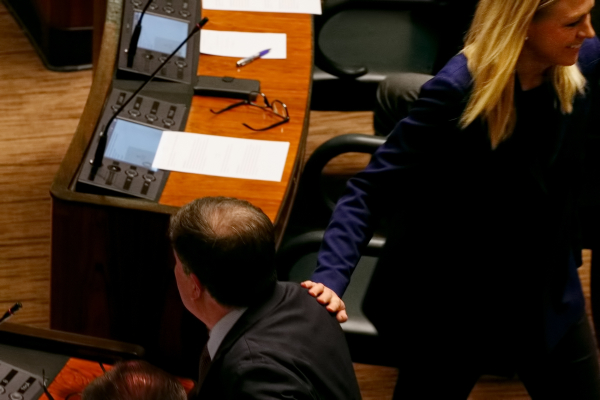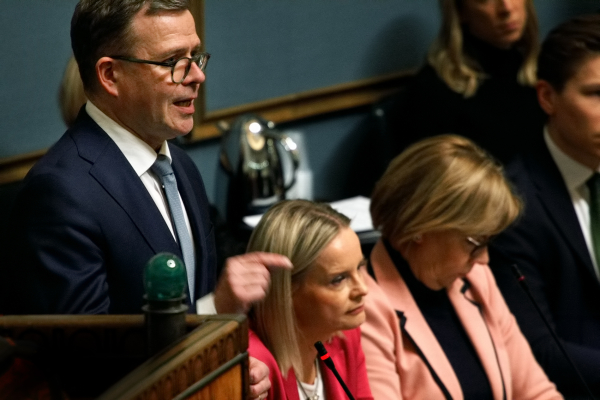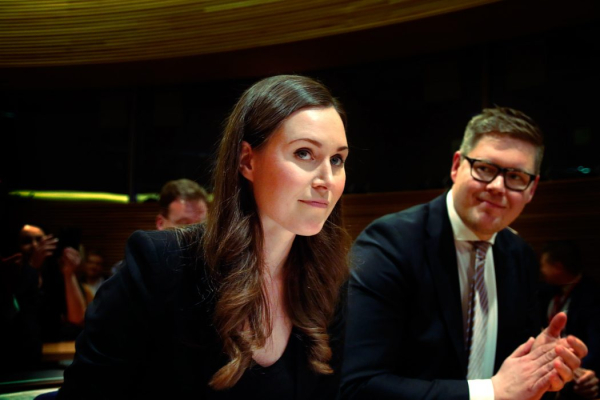Labor Unions Extend Strikes to Three Weeks; A Deeper Look at the ‘Political War’ in the World’s Happiest Country
Finland ranks as the happiest country in the world for the seventh year in a row. At the same time, trade unions and the government have reached a stalemate and companies have no choice but to leave their workers without pay.

Some 7,000 workers in various unions are on strike after the madness that began a week and a half ago on March 11. As of this writing, the strikes are expected to end on April 1.
Meanwhile, many workers are not receiving their paychecks and people are worried that gas stations will run out of fuel.
Even the goddamn opticians are joining the strikes! But what does it mean?
Anyway, old sport, who’s to blame?
Some point the finger at the trade unions, namely, the Finnish Transport Workers’ Union (AKT), the Trade Union for the Public and Welfare Sectors (JHL), the Finnish Industrial Union, the Finnish Electrical Workers´ Union, the Finnish Construction Trade Union and last but not least, the Service Union United (PAM).
ARTICLE CONTINUES AFTER THE ADVERTISEMENT
Others accuse the government. Arto Satonen (NCP), the minister of employment, is the poster boy for the blame. In fact, Parliament voted for his confidence at the beginning of March.
It turned out that 92 voted for Satonen’s confidence and 56 thought that the Minister had misinformed Parliament on several occasions about the relevant legislation in Finland’s peer countries, such as Sweden. (The others voted empty or were not present.) Minister Satonen, according to the parliamentary group of the Social Democratic Party (SDP)—who presented the proposal for a vote for a resolution of no confidence—has repeatedly said in public that the duration of political strikes in Sweden is limited to a few hours.
Poppycock.
“In Sweden, there is no case law from which a specific time limit for political strikes can be deduced,” said Per Ewaldsson, the chief legal advisor at the Medlingsinstitut. Ewaldsson’s role is similar to that of a national conciliator in Finland, who helps negotiators settle labor disputes.

What Satonen, apparently, was referring to when he was talking about the “two hours” can be found in Swedish legal literature, but according to Ewaldsson it is not “legally binding, because the “Labour Court has not ruled so” previously.
So much for Prime Minister Petteri Orpo’s (NCP) comments after a debate on an interpellation around mid-February about the “confrontation” the government was causing with the unions by “refusing all initiatives to solve the situation,” as Antti Lindtman, the chairman of the SDP, put it. The SDP tabled the interpellation.
During the debate, Minister Satonen pulled out an article in which, according to Satonen’s interpretation, the Swedish legal advisor said that “the right to political strikes in Sweden is limited to a few hours.”
“Maybe he [Ewaldsson] knows something about this,” Satonen told Parliament.
Prime Minister Orpo spoke after the debate:
“Minister Satonen now said that he had been right all along. And I think it is absolutely essential that you can now stop the debate on this matter, that you calm down. We will carefully prepare these laws, so there is no need to worry about it,” Orpo said.
At the time of writing, the strikes are still going on, and the last time I checked, during the debate in the plenary session on Thursday, during the so-called Question Hour, the opposition criticized the government to the very last breath.
Read also: GALLERY: Strikes Against the Government’s Policies Clear the City Center of People in Helsinki
“Planes are refueling in neighboring countries and businesses are closing their doors. This strike chaos has gone too far. No concessions will be made one way or the other. It doesn’t make any sense. For a long time, this has been nothing more than a dispute over prestige,” said Olga Oinas-Panuma of the Center Party.

Prime Minister Orpo repeated the same message he’s been repeating since Parliament welcomed a new year of meetings and debates in February. Orpo said the opposition’s speeches sound to him as if they hope the government will give up and abandon the core of the key reforms, which include cuts in social benefits and a proposal for a new law that would limit the duration of political strikes to 24 hours.
Orpo stressed several times that this “core” will not be retreated from.
So, companies such as the forestry giant UPM have announced that they will suspend wage payments at their paper mills, and another big fish in the paper industry, Stora Enso, is swimming in their wake by shutting down factories and suspending wage payments to workers whose work has been forced to stop.
Finland has reached a difficult impasse as Petteri Orpo’s government pushes through its labor market reforms and the trade union movement tries to force the government to the negotiating table with strikes that in some circles are considered “violent.”

Antti Lindtman, the leader of the main opposition party, the SDP, said that Finland could at worst be facing a “multi-year Armageddon.” The consequences, according to Lindtman, are difficult to assess.
His worst fear regarding the labor disputes is that “the confrontation will push the Finnish labor market into an almost permanent instability, where the seeds of conflict in future rounds of collective bargaining will be planted so deeply that they will have long-lasting effects.”
At the time of writing, the unions have decided to continue their strikes, originally planned for two weeks, for (at least) one more week.
The stevedores of AKT and some other port-related workers’ groups are joining the strikes from March 25 to April 1.
On Wednesday, Jarkko Eloranta, the president of SAK, met with work minister Satonen.
It became clear to Eloranta, that the government “was not ready to make compromises concerning the labor market situation, which is why it is necessary to continue the strike to defend employees and unemployed people.” Eloranta was speaking in a statement sent to the Finnish media on Thursday.
“The government and business are now looking for a clear victory over the Finnish worker,” Riku Aalto, the chairman of the Industrial Union, said in a statement. “As a result, we have entered a permanently troubled labor market. We continue to call for genuine negotiations on labor market changes. That is the only way to defuse the tension and restore industrial peace,” he added.
Source: finlandtoday.fi
